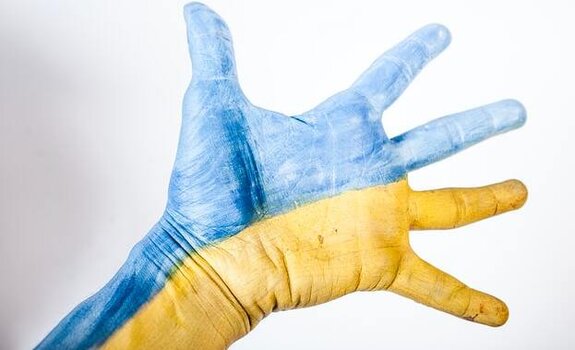With Purim this coming Wednesday night the 16th, Taanit Esther, The Fast of Esther — the dawn to dusk fast the day preceding Purim — is an opportunity for Jewish unity and inclusion in support of Ukraine refugees. There are several compelling reasons, rooted deeply in Jewish tradition, for connecting this year’s fast to the situation in the Ukraine. The tradition of a fast, a remembrance of a time when a people faced an existential threat, meets the moment and can give meaning to us in expressing our connection to the suffering of over two million Ukraine refugees. A fast is an avenue for every Jew to respond, not just financially, but viscerally. It can build Jewish solidarity and a sense of belonging, likely not witnessed since at least the time of support for Soviet Jewry, but perhaps since the Yom Kippur war.
A physical act matters. Its uniqueness emphasizes the importance of the occasion and the connection to others who are suffering. Most Jews are concerned and need an outlet to express that concern. How might this be done? Anyone in the Jewish world could participate either through an actual fast or by making a commitment to give to a nonprofit helping refugees an amount equal to what is or would have been spent on food for that day.
Jewish organizational work needs to connect our current lives and challenges with Jewish wisdom and tradition. This is a teaching opportunity to invoke our collective memory and for Jews to understand the significance of Purim in a way that they likely have not in their lifetimes.
Purim is supposed to be a festive holiday. We have an obligation to celebrate, but a festive tone won’t ring true for so many. How can the celebration of Purim square with the reality of the suffering of over two million refugees? Observing the Taanit might well be a more authentic experience in that one’s outward behavior can mirror what one is feeling inside. The reflection, concern, and sadness that comes with observance of a fast can act as a counterpoint to deepen the experience of the joy that Purim brings. We are commanded to be joyful and demonstrate this palpably through the mitzvot: the feast, mishloach manot – the giving of gifts to family and friends, the reading of the megillah, a story of ultimate deliverance and rejoicing, and matanot l’evyonim, the giving of gifts to the poor, to at least two people in an amount at least equal to the cost of a meal. Why these mitzvot? Because we, at this moment, can do them and rejoice in that fact. Although the fast is a palpable demonstration of concern and connection, the overriding message of Purim is that there is indeed absurdity in our world, but there is meaning beyond absurdity.
Meaning beyond absurdity. Those are the words of Heschel. At the end of his last interview, in advice to young people, he continues:
Let them be sure that every little deed counts,
that every word has power,
and that we do – everyone – our share
to redeem the world, in spite of all absurdities,
and all the frustrations, and all the disappointment.
We can do this. Hillel International, immediately upon encountering the idea, and realizing that students are a great place to start, jumped in to take the campaign to the thousands of students they engage. WFF Rabbi Ben Berger (Class 5) of Hillel is taking the lead and providing essential support. He can be reached here. Hillel will provide social media copy and imagery by Monday, March 14.
Jewish organizations can make this happen across our community. They can identify appropriate entities to receive the donations, following upon the good work already done over the past weeks.
Please share widely with your organizations and community and on your social feeds along with the hashtag #Fasting4Ukraine.

Photo by Elena Mozhvilo on Unsplash
Get To Know The Author
WHP Alum Don Abramson (San Francisco 2) is a past chair of American Jewish World Service.
Get To Know The Author
Joe Kanfer is a past chair of the Jewish Federations of North America.
Neither author is writing in any official capacity on behalf of those organizations.

